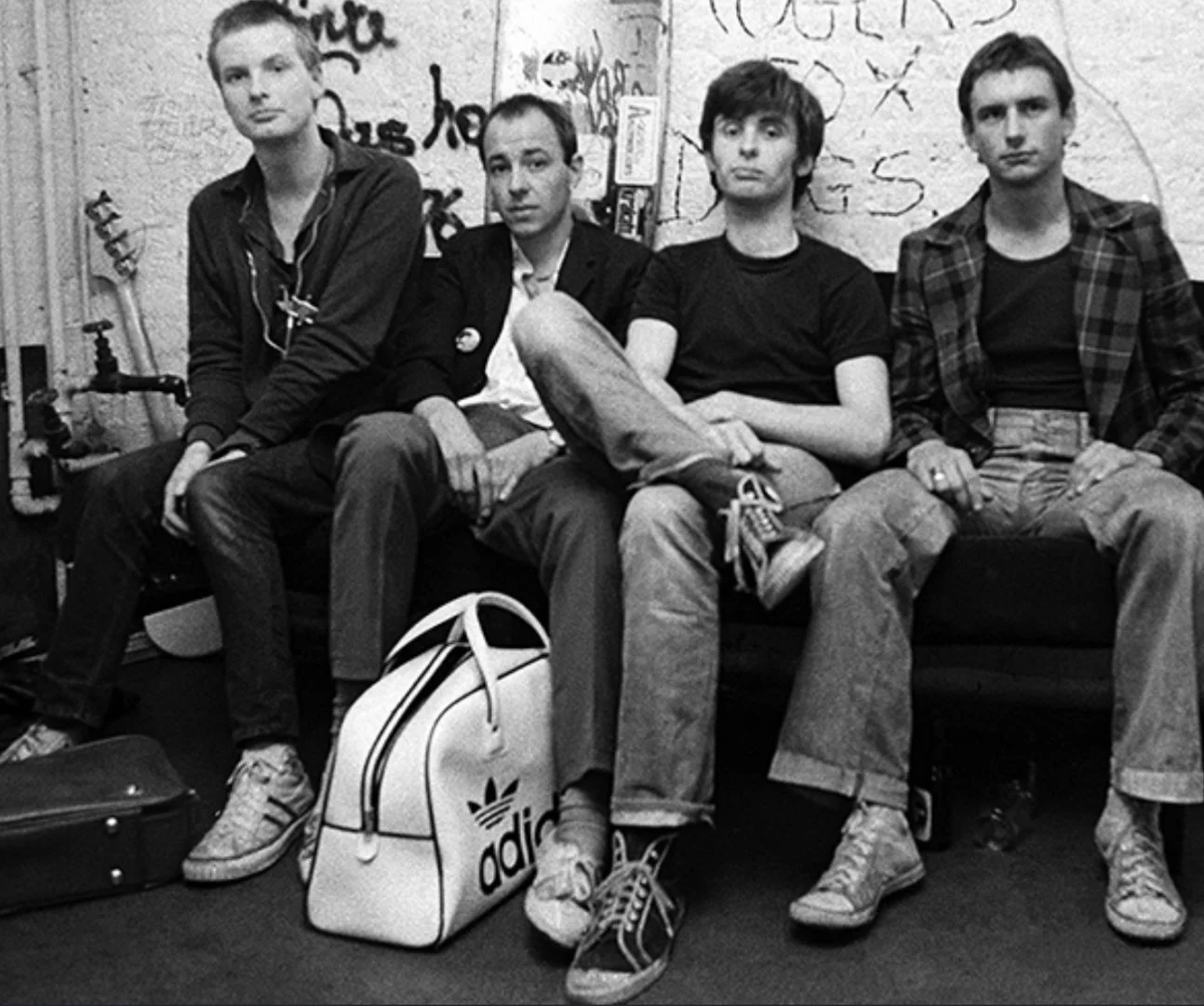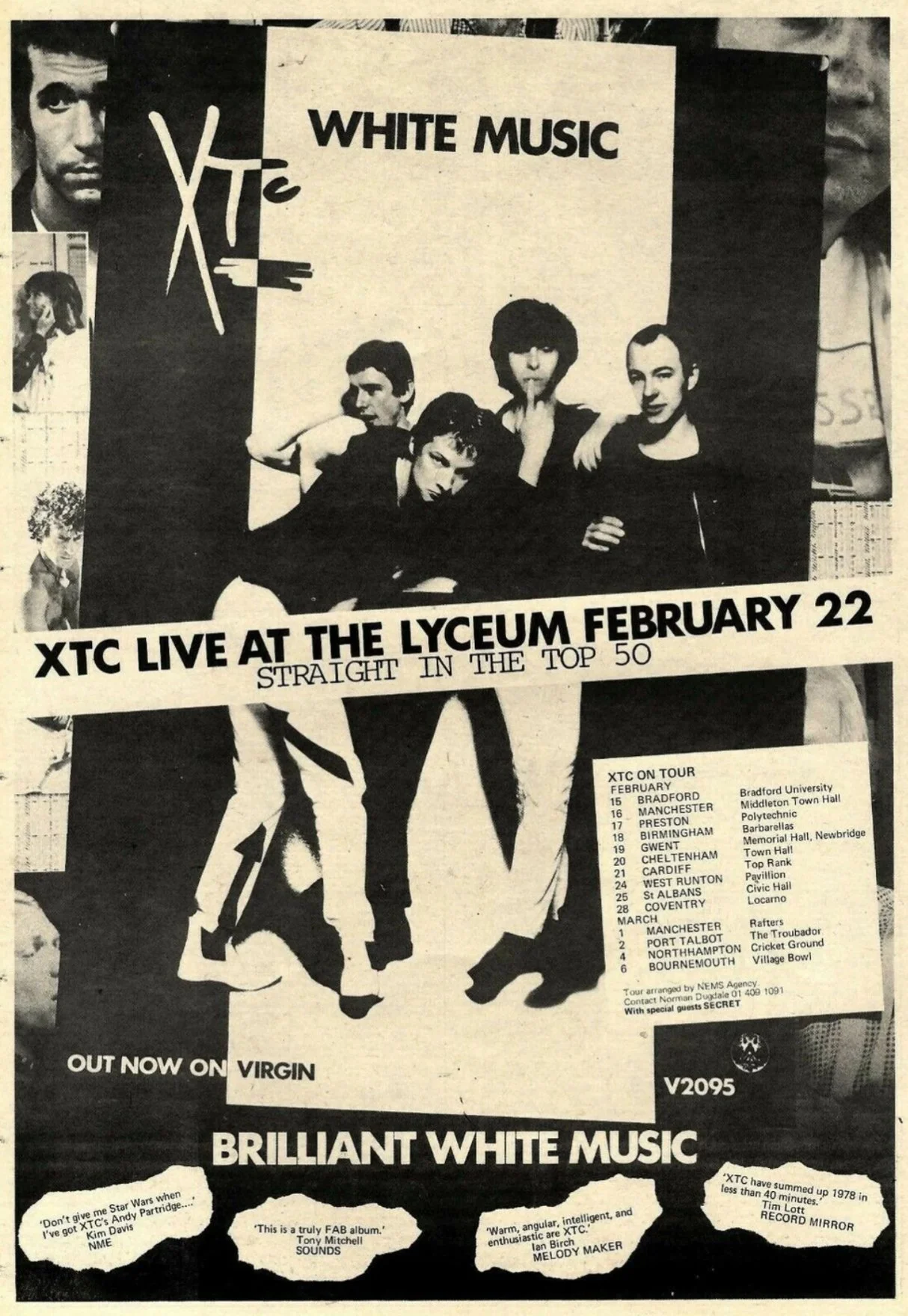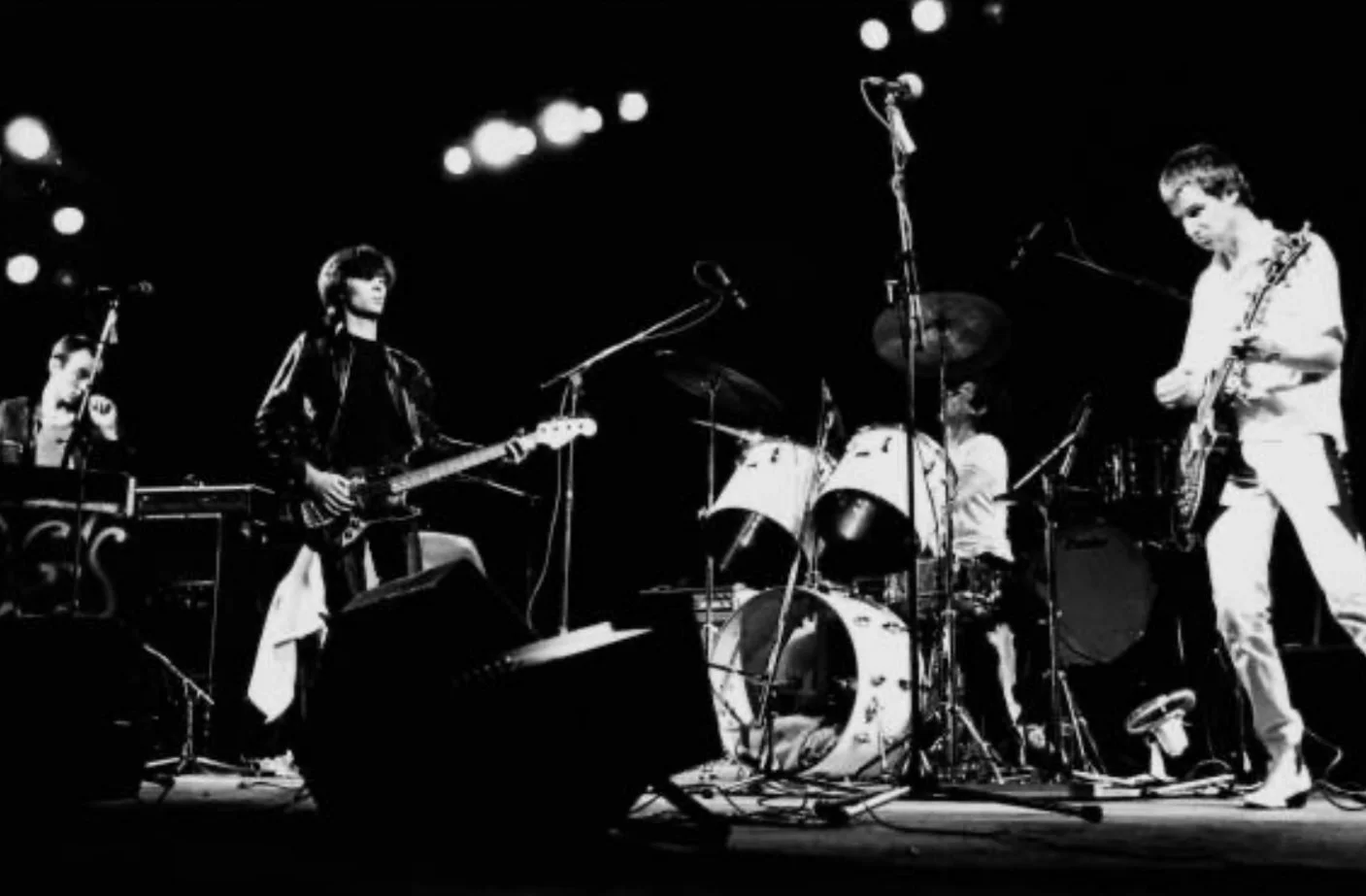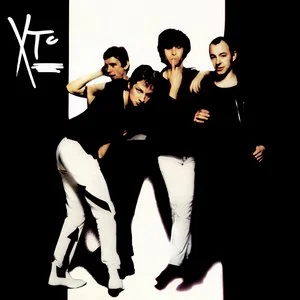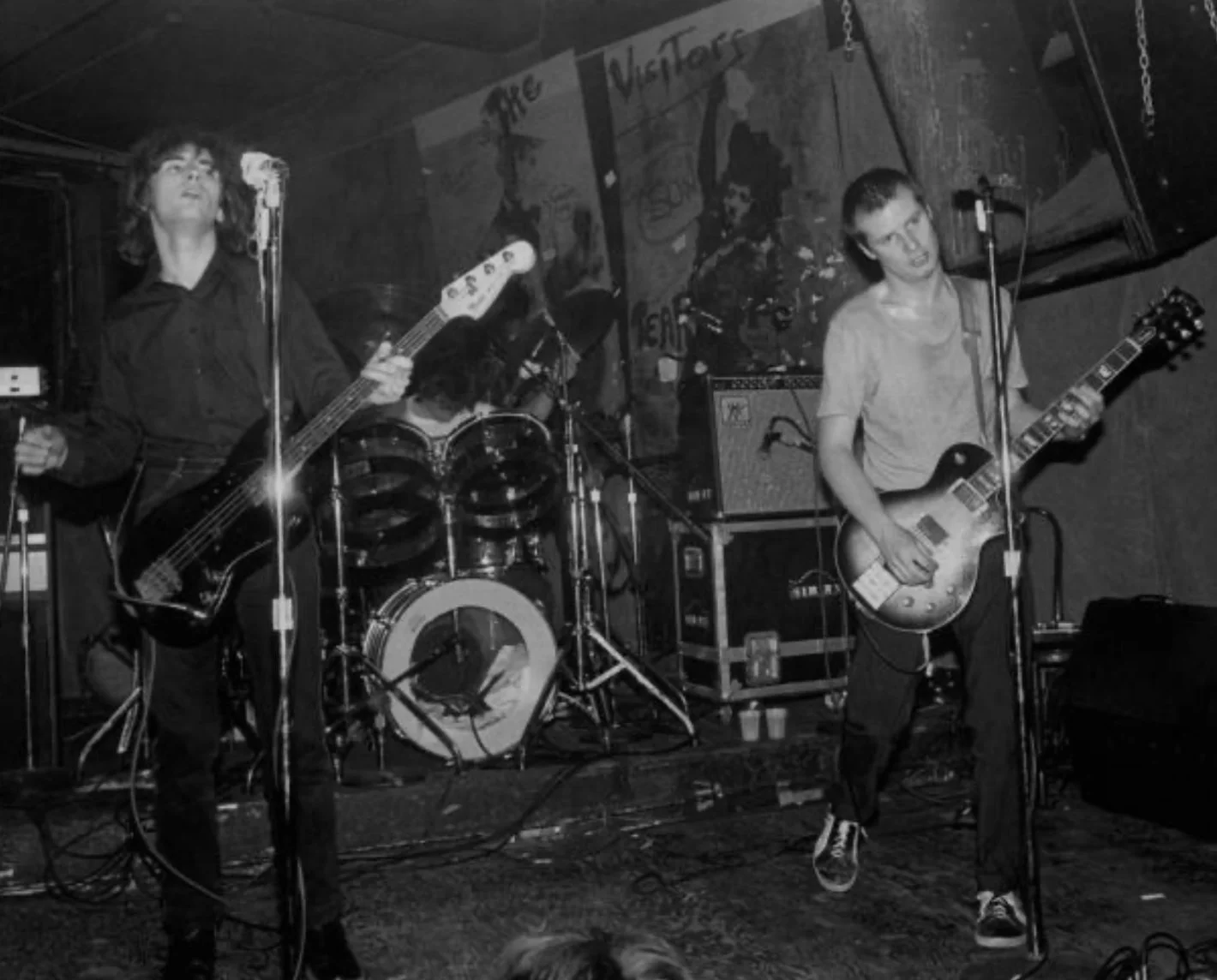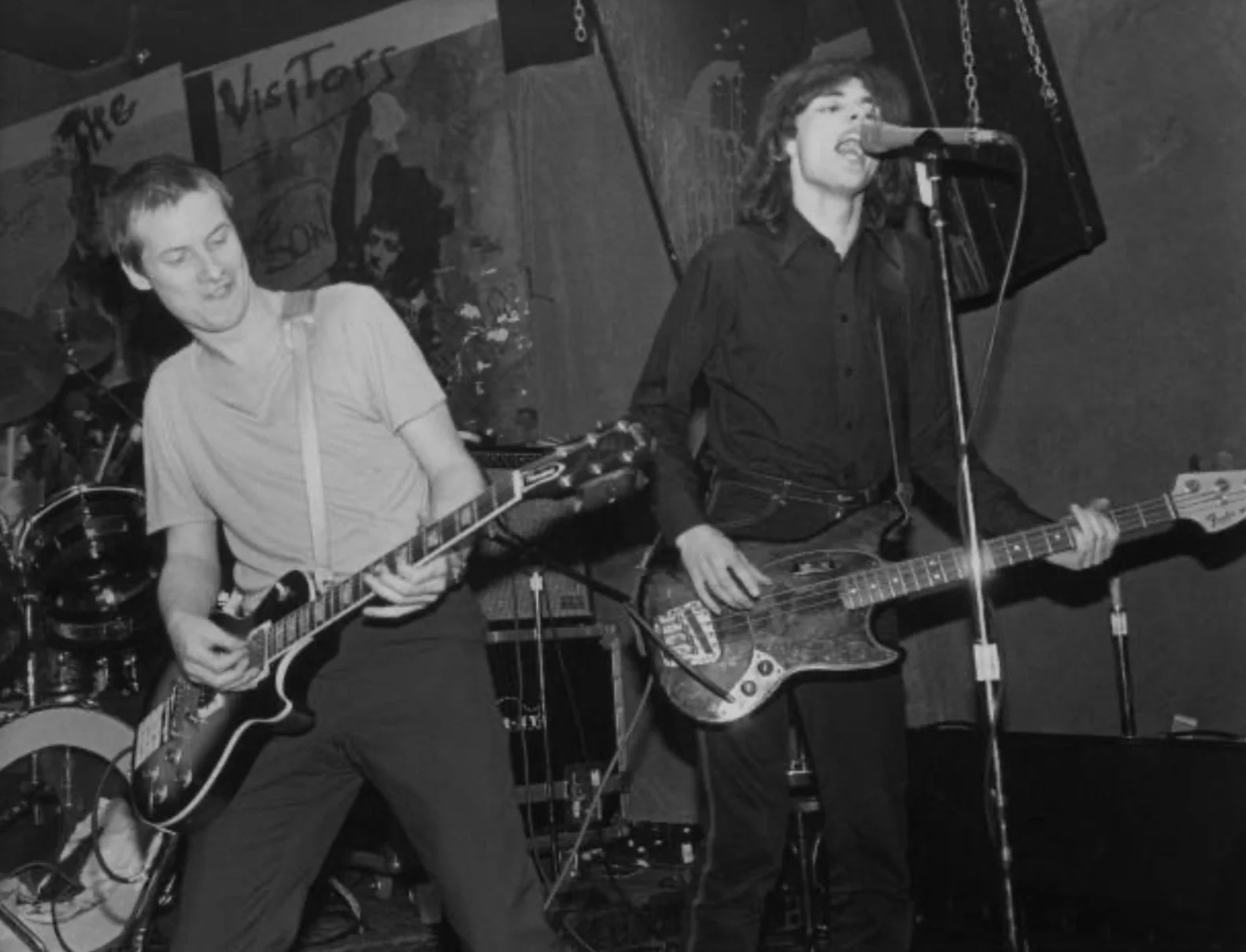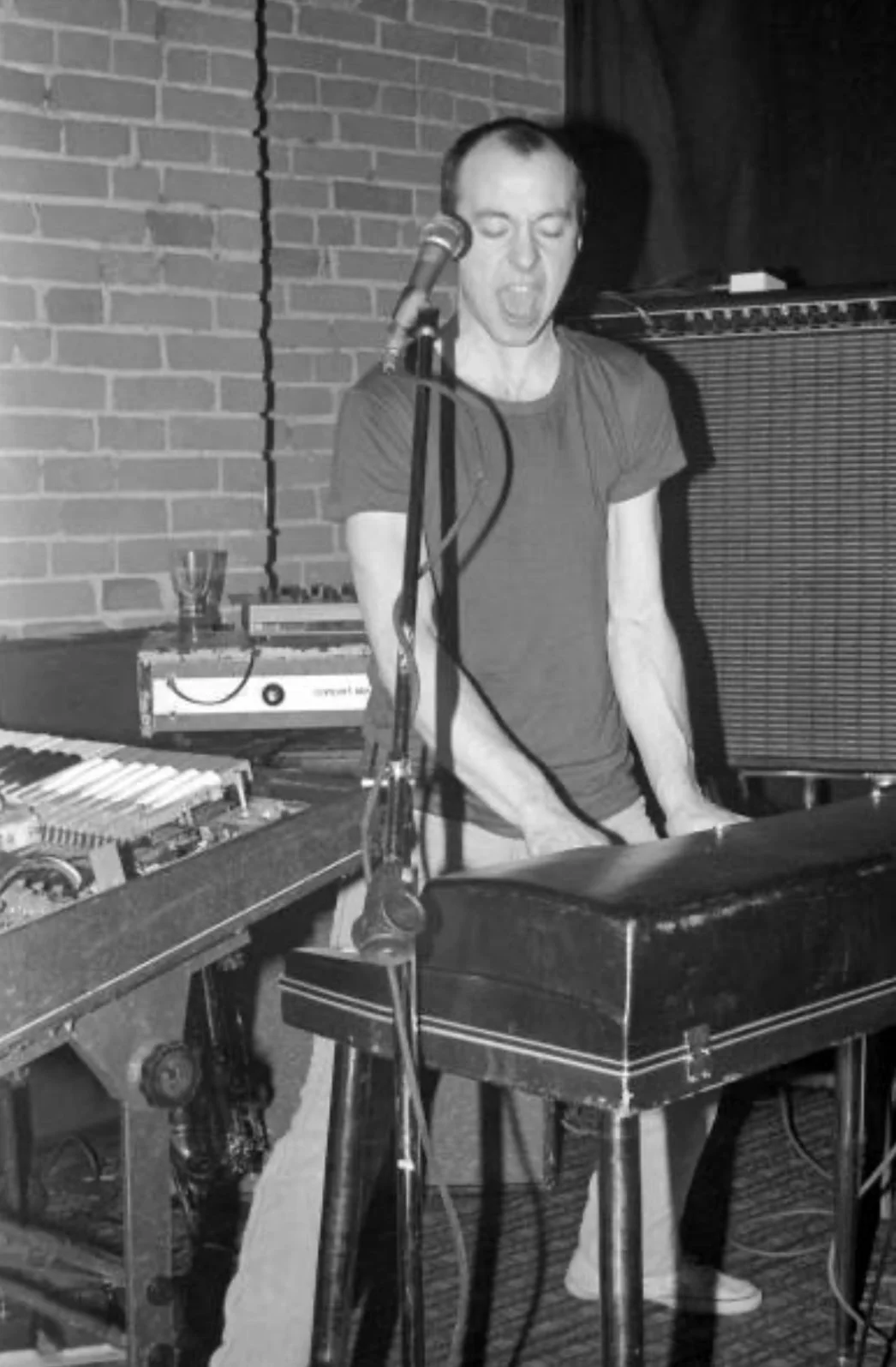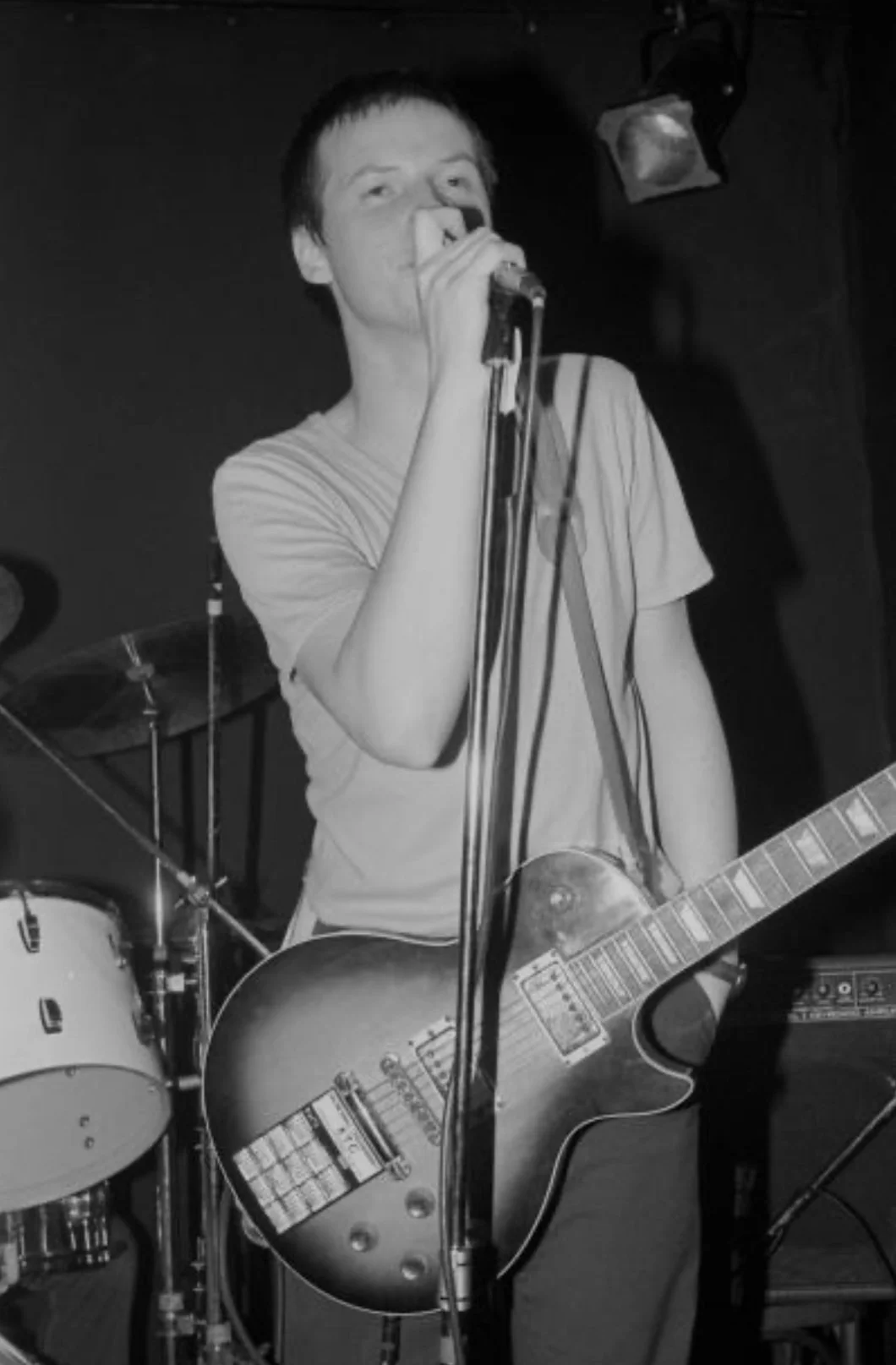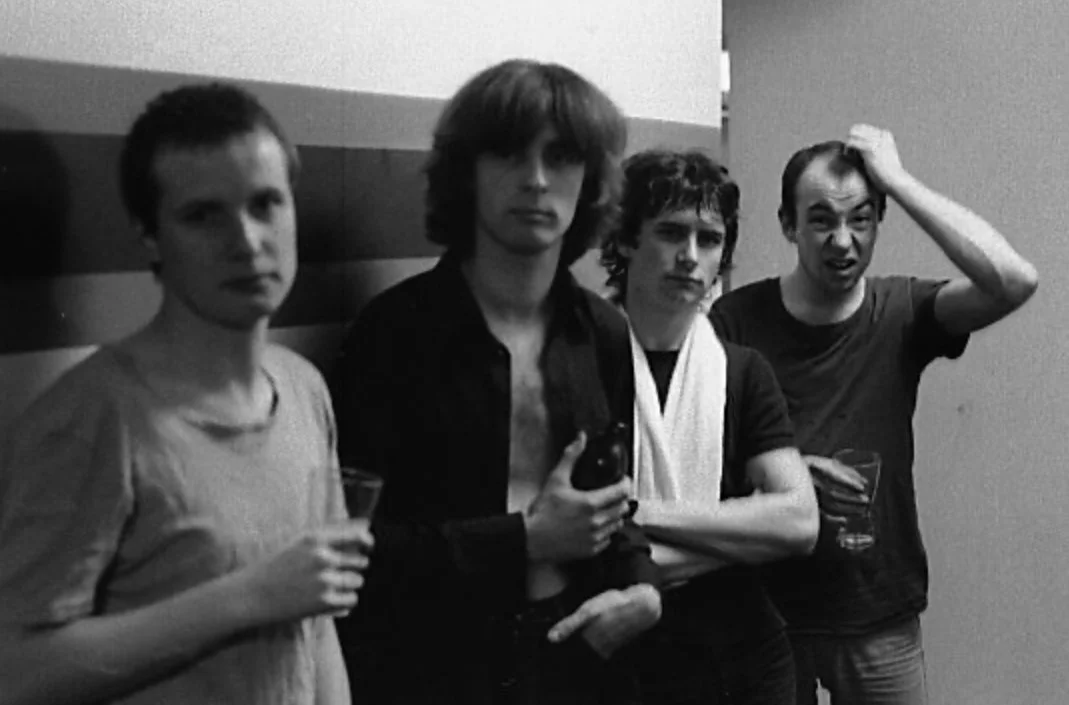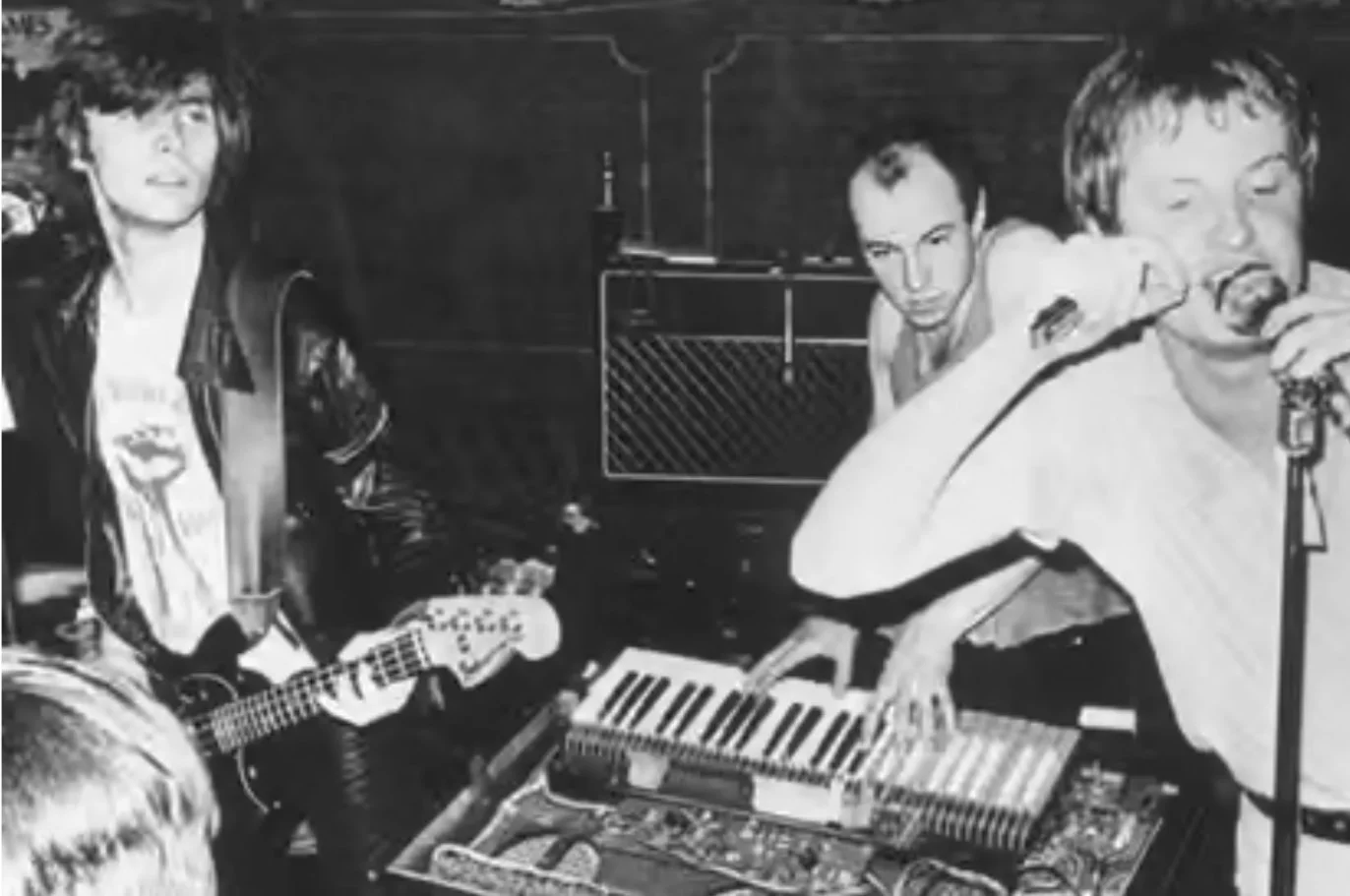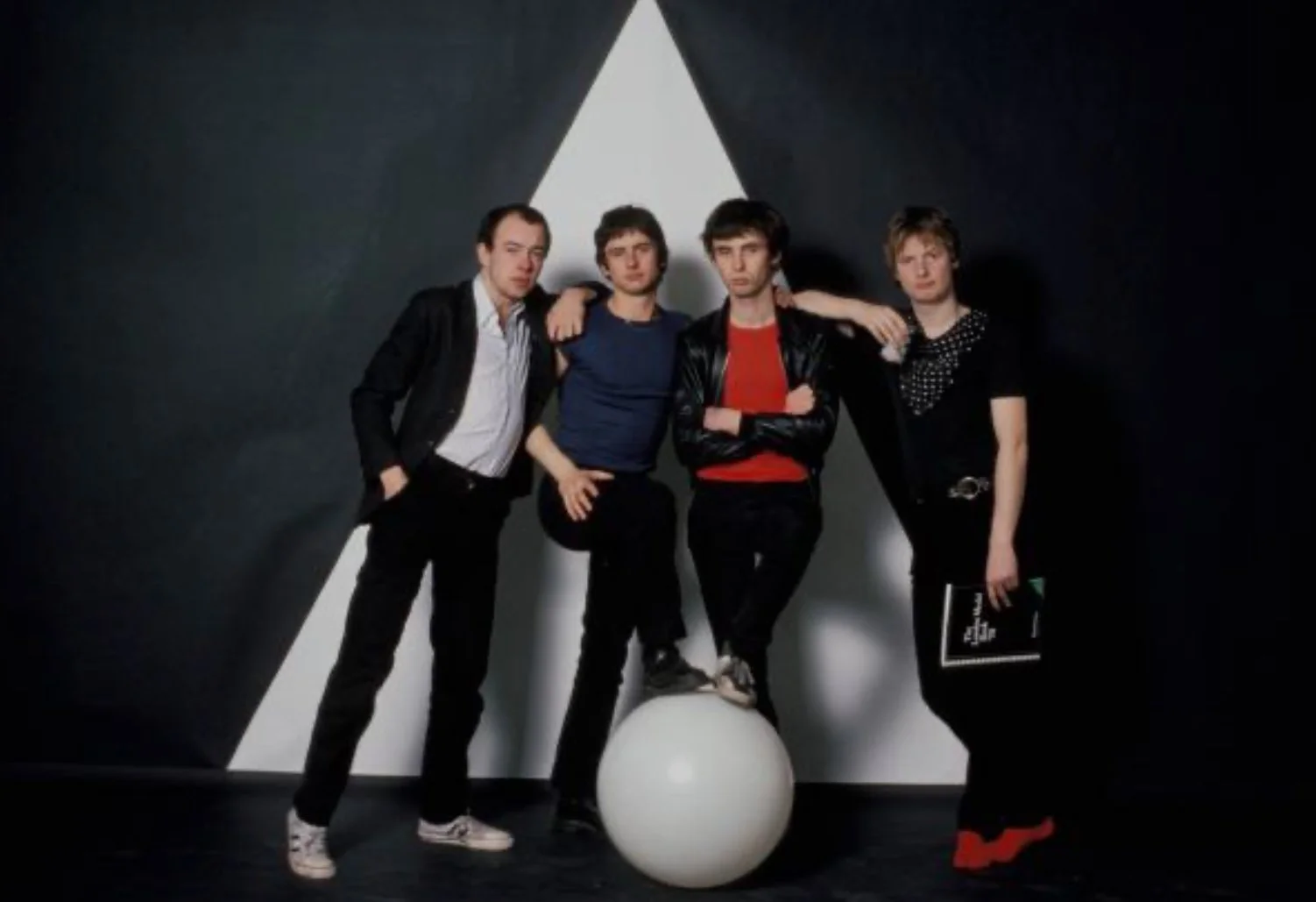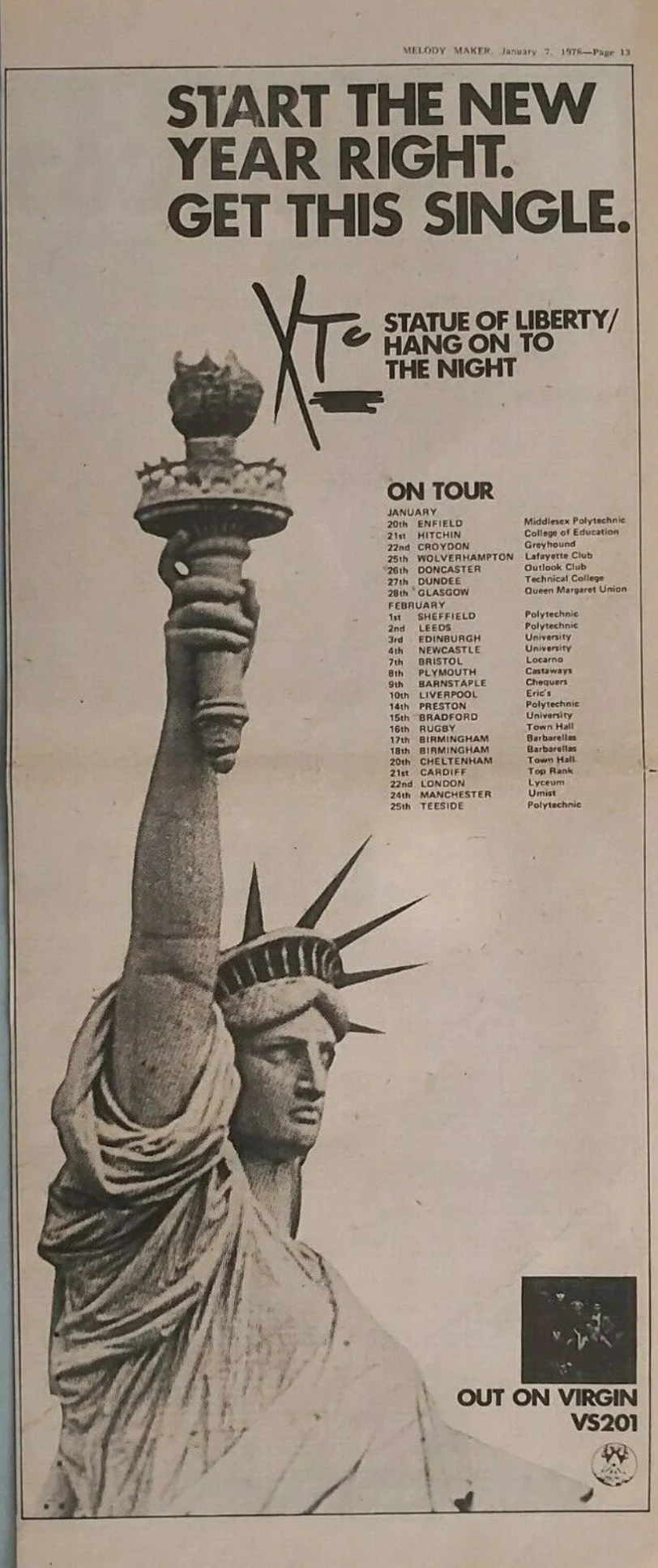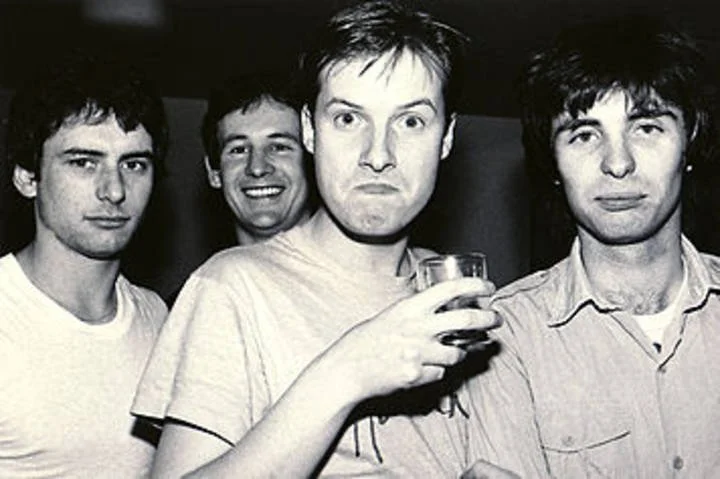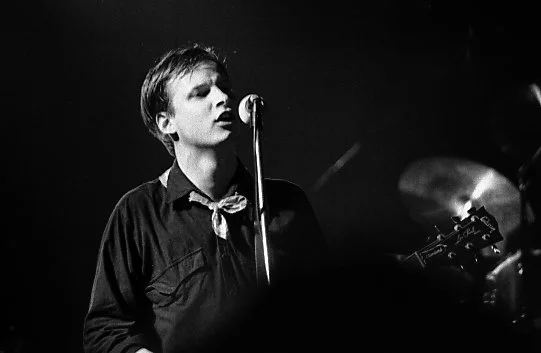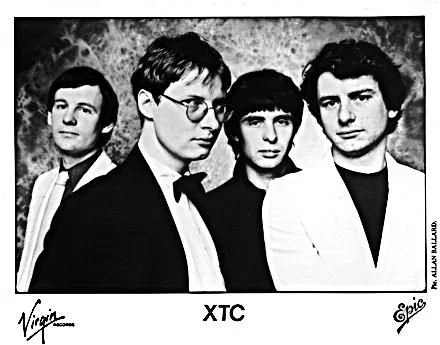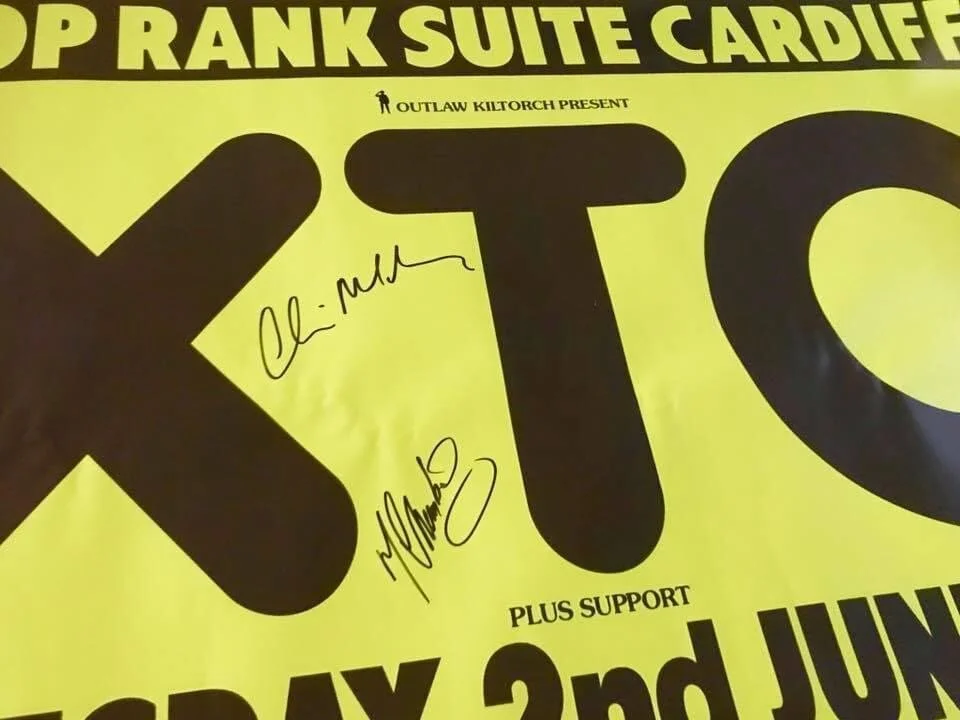Images may be subject to copyright
On this day, 21 February 1978, new wave band XTC played Cardiff’s Top Rank. The band had just released their debut album White Music.
Released on 20 January 1978. It was the follow-up to their debut, 3D EP, released three months earlier. White Music reached No. 38 in the UK Albums Chart and spawned the single "Statue of Liberty", which was banned by BBC Radio 1 for the lyric "In my fantasy I sail beneath your skirt". In April 1978, the group rerecorded "This Is Pop" as their third single.
Originally titled Black Music, referring to black comedy, the title was changed at the suggestion of both Virgin Records and the band's manager. The resultant title, White Music, refers to white noise.
White Music achieved modest success, charting in the Top 40 on the UK album charts, although its singles failed to chart. The band performed "Radios in Motion", "I'll Set Myself on Fire" and "Statue of Liberty" on BBC Two's The Old Grey Whistle Test on 14 February 1978.
XTC
Andy Partridge – guitar, harmonica, vocals
Colin Moulding – bass guitar, vocals
Barry Andrews – piano, organ
Terry Chambers – drums
Setlist
Radios in Motion;
Cross Wires;
Statue Of Liberty;
I'll Set Myself On Fire;
I'm Bugged;
New Town Animal In A Furnished Cage;
Into The Atom Age;
All Along the Watchtower;
She's So Square;
Do What You Do;
Dance Band;
Science Friction;
Neon Shuffle;
Hang On To The Night.


